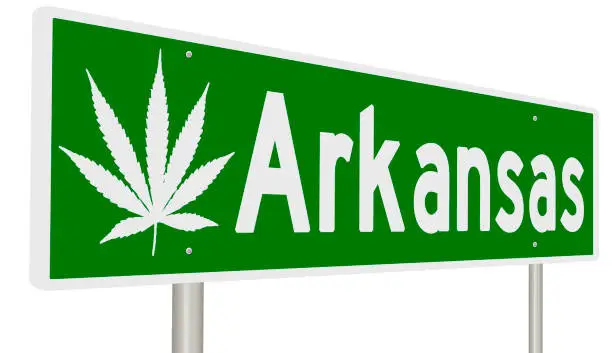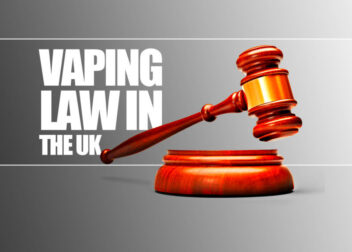Arkansas Vape Sales Restrictions and Legal Implications
In recent years, the popularity of vaping has surged, leading to increased scrutiny and regulation in various states, including Arkansas. As the state aims to protect public health, particularly among young people, vape sales restrictions have been implemented. Understanding these regulations is crucial for both consumers and businesses. This blog post will explore the current vape laws, age restrictions, tax implications, and the broader impact of these regulations on Arkansas communities.
Overview of Current Vape Laws in Arkansas
Arkansas has enacted several laws to regulate the sale and use of vaping products. These laws aim to control access to these products, especially among minors. Here are some key points about current vape laws in the state:
- Definition of Vaping Products: The law defines vaping products to include electronic cigarettes, vape pens, and any associated liquids.
- Retail Licensing: Vendors must obtain a special license to sell vaping products, ensuring they comply with state regulations.
- Location Restrictions: Vape products cannot be sold in certain locations, such as schools and youth-oriented facilities.
- Advertising Regulations: There are restrictions on advertising vaping products, especially when targeting minors.
These laws reflect the state’s commitment to regulating the use of vaping products and protecting public health. Understanding these laws is essential for anyone involved in the sale or use of vaping products in Arkansas.
Age Restrictions for Purchasing Vapes
One of the most significant restrictions regarding vape sales in Arkansas is the age limit for purchasing these products. The state has implemented strict age requirements to curb underage vaping. Here are the key details:
- Minimum Age: The legal age to purchase vaping products in Arkansas is 21 years old.
- ID Verification: Retailers are required to verify the age of customers before completing a sale. Acceptable forms of ID include driver’s licenses, state-issued IDs, and military IDs.
- Punishments for Non-Compliance: Retailers who fail to check IDs or sell to minors can face fines and the potential loss of their sales license.
This age restriction aims to protect young people from the potential health risks associated with vaping. By enforcing these laws, Arkansas hopes to decrease the number of underage individuals using vaping products.
Tax Implications for Vape Sales in Arkansas
In Arkansas, the tax structure for vaping products is designed to generate revenue while discouraging excessive use. Understanding these tax implications is vital for both consumers and retailers. Here are some key aspects of vape taxation in the state:
- Excise Tax: Arkansas imposes an excise tax on all vaping products. This tax is calculated based on the wholesale price, making it essential for retailers to factor it into their pricing strategy.
- Rate of Tax: As of now, the state has set the excise tax rate at 20% of the wholesale price of vaping products. This rate applies to both liquids and devices.
- Sales Tax: In addition to the excise tax, regular sales tax is also applied to vaping products. This adds an extra cost for consumers, as they will pay both the excise and sales tax at the point of purchase.
- Impact on Pricing: Due to these taxes, consumers may find that vaping products are relatively expensive compared to other items. Retailers must balance the tax costs with competitive pricing to attract customers.
Overall, these tax implications serve dual purposes: generating revenue for the state and discouraging underage use by increasing the cost of vaping products.
Legal Consequences for Violating Vape Sales Regulations
Violating vape sales regulations in Arkansas can have serious legal consequences for both retailers and individuals. Here’s a breakdown of what to expect:
- Fines: Retailers caught selling vaping products to minors or without a proper license can face hefty fines. The amount can vary based on the severity of the violation.
- License Suspension: Repeat offenders may experience suspension or revocation of their sales license, which can significantly impact their business operations.
- Criminal Charges: In more severe cases, individuals involved in illegal sales could face criminal charges, leading to potential jail time and a criminal record.
- Legal Actions: Consumers who purchase vaping products illegally may also face legal consequences, including fines or community service.
It’s essential for both retailers and consumers to understand these legal ramifications. By adhering to the laws, everyone can contribute to a healthier and safer community.
Impact of Restrictions on Local Businesses
The restrictions on vape sales in Arkansas have had a noticeable impact on local businesses. While these regulations aim to promote public health, they also create challenges for retailers. Here’s how:
- Reduced Customer Base: Age restrictions and higher prices due to taxes have limited the customer base for vape shops. Many young customers who may have previously purchased products are now unable to do so legally.
- Increased Compliance Costs: Retailers face additional costs related to obtaining licenses and ensuring compliance with regulations. These costs can strain small businesses operating on tight margins.
- Market Competition: Larger chains may have more resources to navigate the regulations, leading to increased competition for local shops. Smaller businesses may struggle to compete with established brands that can absorb costs more easily.
- Shift in Product Offerings: Some retailers may be forced to change their product offerings to remain profitable, focusing on less regulated or more popular items that appeal to a wider audience.
Despite these challenges, some local businesses are adapting by finding innovative ways to market their products and engage with their communities. By understanding and responding to the regulations, they can continue to thrive in a changing market.
Public Health Considerations Related to Vape Use
Vaping has become a hot topic in discussions about public health, especially with the rise in popularity among young people. While some argue that vaping is a safer alternative to smoking, it’s essential to consider the potential health risks associated with vape use. Here are some key public health concerns:
- Health Risks: Vaping can still pose significant health risks. Ingredients in vape liquids can include harmful chemicals that may cause respiratory issues or long-term health complications.
- Addiction: Many vaping products contain nicotine, which is highly addictive. Young users may become dependent on nicotine, leading to continued use and possible transition to traditional cigarettes.
- Impact on Youth: The accessibility and appealing flavors of vaping products attract younger audiences, raising concerns about increased use among teenagers and its impact on their developing brains.
- Public Health Campaigns: In response to these concerns, various public health organizations are working to raise awareness about the risks of vaping. Educational campaigns aim to inform both youth and parents about the dangers of vape use.
As the debate over vaping continues, it’s crucial for individuals to weigh the potential risks against the perceived benefits. Awareness and education can play a significant role in addressing these public health issues.
Frequently Asked Questions about Vape Sales in Arkansas
Understanding the regulations surrounding vape sales can be confusing, especially with the constant changes in laws. Here are some frequently asked questions to clarify common concerns:
- What is the legal age to purchase vaping products in Arkansas? The legal age is 21 years old. Retailers must verify age before selling products.
- Are there taxes on vaping products? Yes, Arkansas imposes an excise tax of 20% on the wholesale price of vaping products, along with applicable sales tax.
- What happens if a retailer sells to a minor? Retailers can face fines, license suspension, or even criminal charges for repeated violations.
- Can vaping products be sold online? Yes, but sellers must still comply with Arkansas laws, including age verification.
By addressing these questions, consumers and retailers can better navigate the complexities of vape sales regulations in Arkansas.
Conclusion on Arkansas Vape Sales Restrictions and Their Legal Implications
Arkansas has taken significant steps to regulate vape sales, primarily aimed at protecting public health and preventing underage access. These restrictions have far-reaching legal implications for both retailers and consumers. As we’ve discussed, understanding the current laws, tax implications, and age restrictions is crucial for everyone involved in the vaping community.
While these regulations aim to create a safer environment, they also pose challenges for local businesses and raise questions about public health. It’s vital for retailers to comply with these laws to avoid penalties and contribute positively to their communities. Ultimately, the ongoing dialogue about vaping and its implications will shape future regulations and public health initiatives.
By staying informed and engaged, we can all play a role in fostering a responsible vaping culture in Arkansas.


